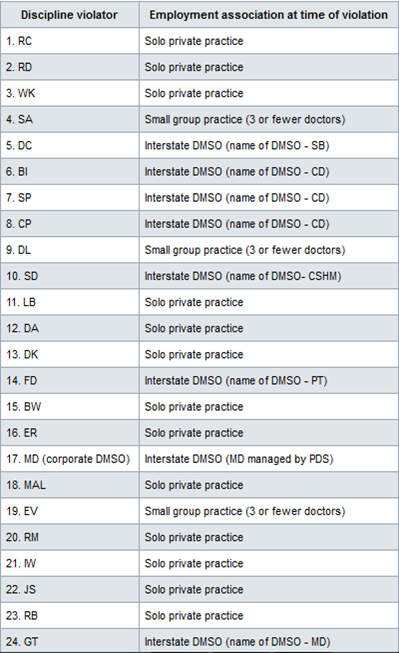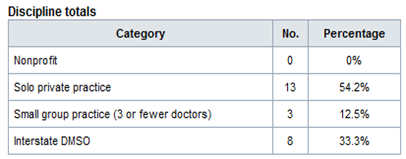Dr. John Armstrong and Michael Knezevich-
A Story of Two American Patriots
by: Michael W. Davis, DDS
Dr. John H. Armstrong led a highly distinguished and venerated career as a physician, in the US Army. His active duty responsibilities included orthopedic surgery, supervision of a specialized trauma unit, as well as education for our next generation of physicians. He assumed responsibility not only for active duty personnel injured in the line of combat duty, but also their families at times. As a command medical officer, he was there for the well being of our nation’s soldiers.
Dr. Armstrong fully comprehends working with a team, and within chain-of-command, to obtain the desired objective. He will get results. He will support his command subordinates, in the field. As such, he generates team morale. He serves as both a leader by example, and importantly as a teacher, mentor and coach, to his subordinates.
This is the remarkable individual, Florida Governor Rick Scott appointed to position of Florida State Surgeon General, in 2012.
(for more please read: http://www.floridahealth.gov/public-health-in-your-life/about-the-department/ssg/index.html)
Michael Knezevich is a retired police officer veteran, of over twenty years. His skin is calloused from years, of dealing with the criminal element in our society. It’s in his blood to “protect and serve”, the public welfare. Today, Mr. Knezevich works at a salary of approximately, $36,000 per anum, as a malpractice investigator for Florida’s Department of Health and Human Services. He investigates allegations of Medicaid and Medicare fraud, for basically a peanut’s income. Mr. Knezevich is only a few paychecks himself distanced, from the disadvantaged, who depend on government assistance. He’s often up against highly skilled white-collar criminals and medical professional criminals, who cheat the taxpayer and harm the most vulnerable in our society. Mr. Knezevich is definitely fighting the good fight, “in the trenches”.
The bipartisan US Senate report of July 2013, on corporate dentistry offered firm evidence of dental Medicaid fraud, as a well-established industry and business model, within the dental profession. Further troubling evidence has been provided by reports of Bloomberg Business News, PBS Frontline, investigative reporters Byron Harris and Roberta Baskin, Debbie Hagan’s “Dentist The Menace” online blog, etc. At the federal level, the Office of Inspector General for Health and Human Services has been continually admonished for “wrist slaps” on violators, which enable and perpetuate unlawful activities. Individual state auditors and regulators fare no better, in their enabling of Medicaid and Medicare abusers and fraudsters.
Dr. Thomas Floyd recently embarrassed Florida. He was an entrenched icon of organized dentistry, both in Florida and nationally. Dr. Floyd was allegedly involved in numerous acts of physical abuse of disadvantaged Medicaid children, going back for over a decade. Florida’s “good old boy” system gave him pass after pass. Allegations came and went, as did witnesses, but it was business as usual for Dr. Floyd. Florida’s regulatory authorities were in perpetual hiding, under their collective desks. Eventually, even this disturbing boil came to a head and popped. Dr. Floyd has since surrendered his dental license, and agreed to never again practice dentistry. However, this alleged Medicaid violator’s abuses were so egregious, this amounts to “a day late and a dollar short”, when it comes to protection of the public interest.
Next came the alleged actions against Dr. Michael Tarver, a pediatric dentist and Medicaid provider. His actions of amending patient records, after knowledge of those records being under Florida State investigation, have been confirmed. He added entries into patient records, but neglected to openly signify the amendments were at a later date, and not the day of patient care. This represents a potentially serious misrepresentation, which any first-year medical or dental student would be sanctioned for. In my personal work as an expert dental witness, this act alone usually changes the questions asked. It’s no longer a question of malpractice or not, but a question of fraud, and how severe the settlement will become against the violator.
Supporters of Dr. Tarver nitpick over a parent’s complaint of lack of informed consent for general anesthesia. In actuality, medicated conscience sedation was employed for the minor patient. Either way, medications were delivered to a child, which have known risks, without the consent of the parent, and with their expressed disapproval. Only a trained medical or dental expert is held to the standard of care, of understanding different levels of sedation and their associated risks. An untrained person can’t be held to medical/dental standard of care, but the doctor certainly is.
Dr. Tarver allegedly resuscitated a child patient, after they stopped breathing during dental treatment. The parent was allegedly never informed of this adverse clinical outcome, which violates standard of care, as well as Florida statutes relating to practice of dentistry. Parents were routinely denied access to accompany their children during dental care by Dr. Tarver, so they often had no direct knowledge of exactly how their children were being cared for. Although Dr. Tarver claimed in a press report, that the American Academy of Pediatric Dentistry (AAPD) condones his actions of denying parent’s access to their children during dental procedures, the opposite is the truth. The AAPD Guidelines state that most children behave better (not worse) with their parent’s presence. One is left to wonder, what Dr. Tarver may be hiding?





